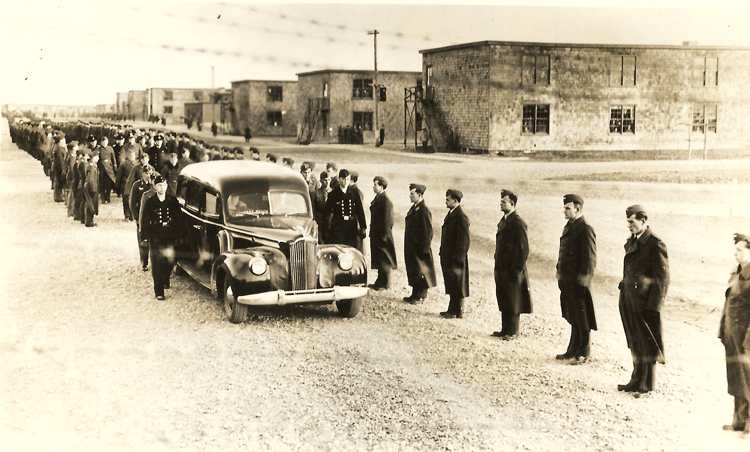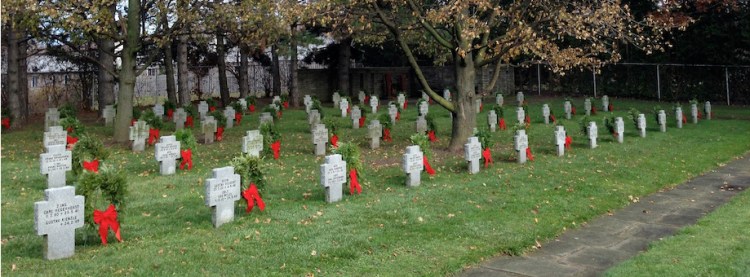Tucked away in a corner of Kitchener’s Woodland Cemetery lies the final resting place of 187 German Prisoners of War who died in Canada during their internment. One hundred and forty-eight of these men were German PoWs from the Second World War while the remaining thirty-nine were civilian prisoners from the First World War.
Those interred in Kitchener represent a wide swath of the German armed forces in the Second World War – ranging from airmen shot down in the Battle of Britain to U-Boat crewman picked up in the Atlantic to infantrymen captured in North Africa. Their average age was thirty-three but their ages ranged significantly, with the oldest at age 70, Mtr. Heinrich Burmeister, having committed suicide on January 26, 1944 and the youngest at age 18, Grenadier Adolf Steuer, dying of Tuberculousis on July 5, 1945.
The causes of death were mixed. Ninety-one of those buried in Kitchener died of natural, medical, or health-related causes, including heart attacks, tuberculosis, cancer, and pneumonia. The next most common causes of death was accidents, notably drownings or work-related incidents, which claimed twenty-nine lives. Thirteen men were also reported to have committed suicide during their internment in Canada. The least common causes of death include four PoWs shot while attempting to escape as well as two PoWs murdered by fellow PoWs and the five men convicted of these murders.
Depending on the size of the camp, funeral services could either be held directly at the camp, like in Medicine Hat, or at local civilian churches. The prisoners were originally buried in civilian or small, dedicated cemeteries near the place of death and graveside services were attended by a select group of PoWs. An escort of the Veterans Guard of Canada often provided a rifle salute. Graves were often adorned with wooden grave markers painstakingly carved by their fellow comrades and it was not uncommon to see an Iron Cross or Imperial Eagle adorning the markers.

Because the cemeteries were scattered across the country and many were falling into disrepair, the German War Graves Commission looked at the possibility of relocating all of the fallen PoWs to a central site that could be easily maintained. After a long search, the Commission settled on Kitchener, Ontario as the cemetery’s location.
While the project attempted to relocate all PoW graves, at least three prisoners who died in Canada were not relocated to Kitchener. One prisoner lies unidentified in Saskatchewan, one Ontario grave could not be found, and the body of a drowning victim was never recovered.
For those interested, a list of the PoWs who died in Canada will be posted in the coming days.

Awesome work Michael!!!
So interesting!